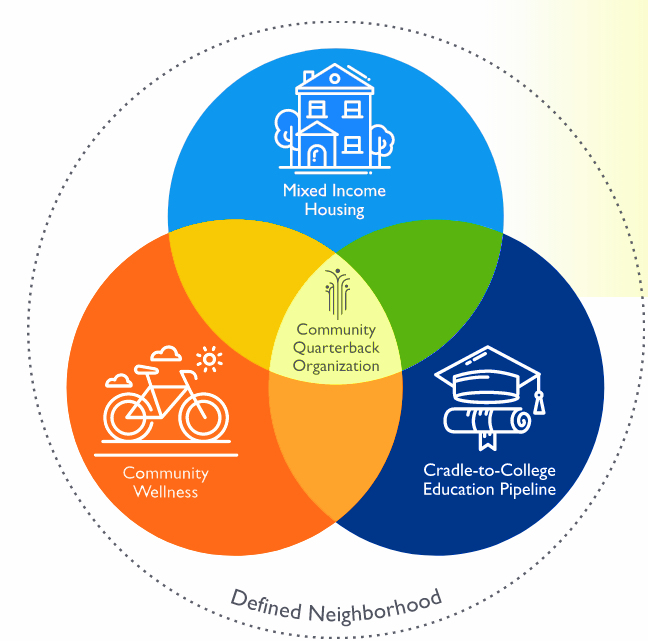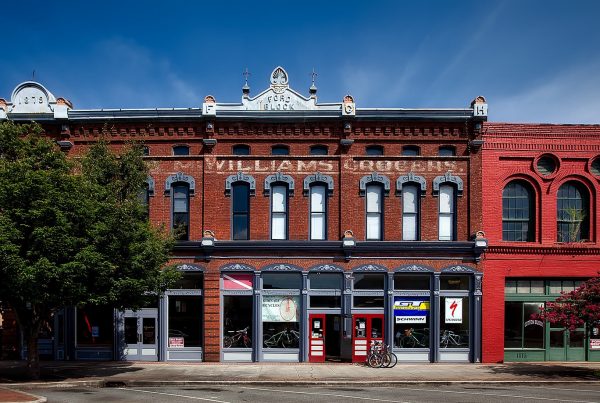Background
Purpose Built Communities was founded in 2009 with the mission of replicating the success of a place-based community transformation effort that began in the mid-1990s in the East Lake neighborhood of Atlanta. Tom Cousins, Julian Robertson and Warren Buffett founded the organization, because they believed that this model of neighborhood revitalization could be replicated elsewhere and, by doing so, potentially influence the way the country addressed the issue of intergenerational urban poverty.
Case Study
Over the past ten years, the Purpose Built Communities organization has helped local leaders launch 27 neighborhood revitalization projects across the country. They have an additional 50 projects in development. Given the nature of their work, we share their science and research in fields that can inform planners and community developers. One revitalization project in Tulsa, called Growing Together, shows us their outcomes.
Before 2010, Kendall-Whittier was known as an area where opportunity was hard to come by, and it was not a desirable place to live. Today, Growing Together and its partners are building on a solid foundation in the neighborhood, which serves as a hub for Tulsa’s vibrant Latinx community. Watch this 4-minute video:
“Growing Together is known as a community quarterback. That means we guide and support community members, organizations and funders to create vibrant communities for children.”

What Science and Research Show Us
Keys to success include developing strong, trusting relationships that use data and continuous improvement to change and improve the outcomes, and discovering ways in which collective impact can be achieved.
- Intergenerational urban poverty continues to persist and has not been materially reduced by public and private interventions over the past half century. Although those interventions have helped to alleviate the effects of poverty, they have done too little to address its root causes.
- Intergenerational urban poverty is intrinsically linked to place, and more precisely, to neighborhoods. Distressed urban neighborhoods were engineered into existence by mal-intended public policy and private actions that were explicitly designed to segregate our cities and concentrate poverty into targeted neighborhoods.
- These urban neighborhoods are highly distressed in the sense that they contain sources of toxic stress. It is exposure of children to these sources of toxic stress that impedes their healthy neurological and physiological development and serves as the engine of intergenerational poverty.
- This root cause of intergenerational urban poverty—the exposure of children to sources of toxic stress—can be eliminated by transforming distressed neighborhoods into healthy ones. Healthy neighborhoods are self-sustaining, durable and produce young adults with the capacity to independently succeed and thrive in the world.
Leading with Equity
Building racial, social and health equity in communities of concentrated poverty is not an unrealistic dream – it’s happening in real-time across the Purpose Built Communities network. A group of thoughtful leaders from diverse backgrounds in different cities have moved from talking to leading with equity. Visit PurposeBuiltCommunities.org to learn more.





